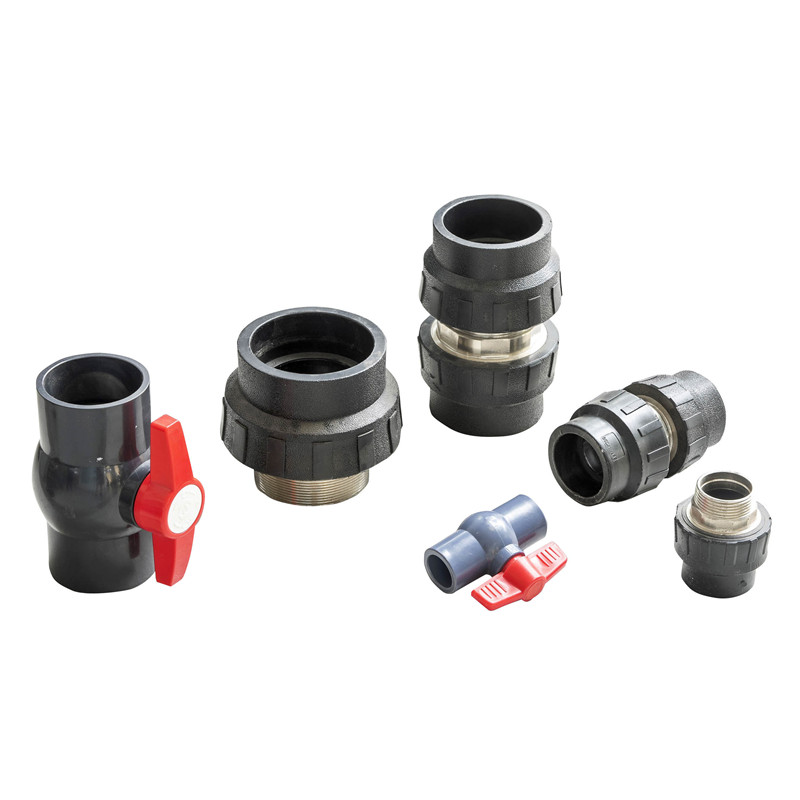Aug . 12, 2024 14:26 Back to list
High-Density Polyethylene Drainage Pipe Solutions for Effective Water Management and Environmental Sustainability
Understanding HDPE Drainage Pipes A Comprehensive Overview
High-Density Polyethylene (HDPE) drainage pipes have gained significant traction in the construction and infrastructure industries over the past few decades. Their unique properties and benefits make them an attractive option for various drainage applications. This article explores the characteristics, benefits, and applications of HDPE drainage pipes, emphasizing their importance in modern engineering.
What is HDPE?
High-Density Polyethylene (HDPE) is a thermoplastic polymer made from petroleum. Known for its high strength-to-density ratio, HDPE is durable, resistant to impact, and has excellent chemical resistance. These attributes make HDPE plastic a popular choice for a wide array of applications, from packaging to construction, particularly in drainage systems.
Key Characteristics of HDPE Drainage Pipes
1. Durability HDPE pipes boast a long lifespan, often exceeding 50 years. Their resistance to corrosion and degradation makes them ideal for various environmental conditions, including harsh chemicals and temperature fluctuations.
2. Flexibility Unlike rigid piping materials, HDPE pipes can be easily bent and shaped to accommodate the layout of a drainage system. This flexibility allows for simpler installations and reduces the need for additional fittings, ultimately cutting installation costs.
3. Lightweight HDPE pipes are significantly lighter than traditional materials like concrete and steel. This characteristic reduces transportation and handling costs and simplifies the installation process, especially in environments where manual labor is limited.
4. Smooth Interior Surface The smooth surface of HDPE pipes minimizes friction, facilitating easier flow of water and reducing the risk of blockages. This design feature is critical for maintaining efficient drainage systems.
5. Environmental Sustainability HDPE is a recyclable material, contributing to sustainability efforts in the construction industry. Many manufacturers produce HDPE pipes from recycled materials, further enhancing their eco-friendly profile.
Benefits of Using HDPE Drainage Pipes
hdpe drainage pipe

1. Cost-Effectiveness Although the initial investment may be comparable to other materials, the long lifespan and low maintenance requirements of HDPE drainage pipes make them a cost-effective choice over time. Their installation can also be faster, reducing labor costs.
2. Resistance to Roots and Blockages HDPE pipes’ resilience against root intrusion and blockage is a vital advantage in drainage applications. Their structural integrity prevents damage from plant roots, which can often compromise other types of drainage systems.
3. Versatility HDPE drainage pipes are suitable for various applications, including stormwater management, wastewater management, and agricultural drainage systems. Their adaptability allows for use in residential, commercial, and industrial projects.
4. Ease of Installation The lightweight nature and flexible design of HDPE pipes simplify the installation process. They can be joined using thermal fusion, providing a leak-proof system that reduces infiltration and exfiltration issues.
Applications of HDPE Drainage Pipes
HDPE drainage pipes find applications across numerous sectors, including
- Stormwater Management They are widely used in constructing stormwater management systems, facilitating the efficient drainage of excess rainwater, thus preventing flooding and erosion. - Wastewater Treatment HDPE pipes are vital in wastewater treatment facilities, ensuring the safe transport of sewage and other waste materials without risk of leaks.
- Agricultural Drainage In agriculture, HDPE pipes help manage excess groundwater, improving crop yield and soil health.
- Trenchless Technology Their flexibility and strength make HDPE pipes an excellent choice for trenchless installation methods, minimizing surface disruption during installation.
In conclusion, HDPE drainage pipes offer numerous advantages that make them a preferred choice in drainage applications worldwide. Their durability, cost-effectiveness, and environmental benefits contribute significantly to the performance and sustainability of modern infrastructure. As industries increasingly focus on sustainability and efficiency, the popularity of HDPE drainage pipes is likely to continue its upward trend.
-
High-Quality PPR Pipes and Fittings Durable ERA PPR & PVC PPR Solutions
NewsJul.08,2025
-
Black HDPE Cutting Board - Durable, Non-Porous & Food Safe HDPE Plastic Cutting Board
NewsJul.08,2025
-
High-Quality CPVC Panel Durable HDPE & PVC Panels Supplier
NewsJul.08,2025
-
Double PE Welding Rod Supplier - High Strength, Durable & Versatile Welding Solutions
NewsJul.07,2025
-
High-Quality PVC-O Pipe Supplier Durable 75mm PVC Pipe & Connections Leading PVC Pipe Company
NewsJul.07,2025
-
HDPE Drainage Pipe Supplier – Durable & Corrosion-Resistant Solutions
NewsJul.06,2025

